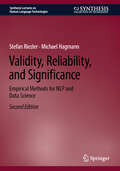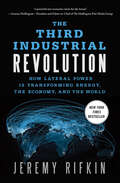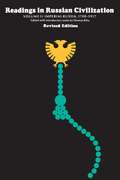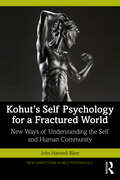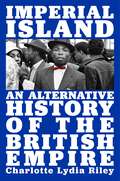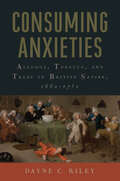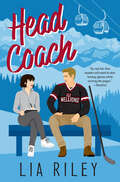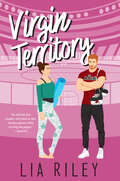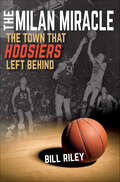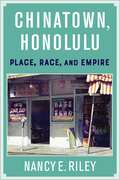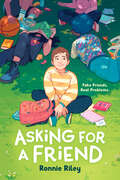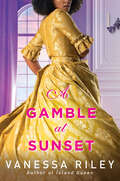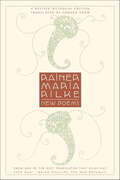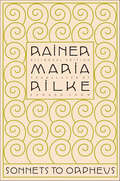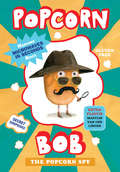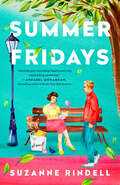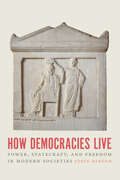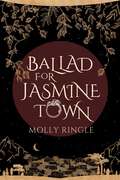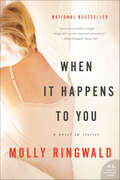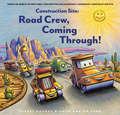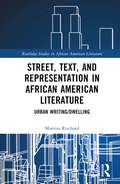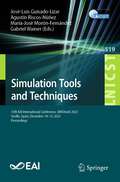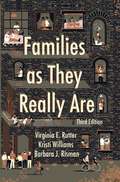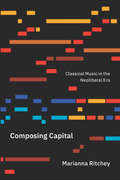- Table View
- List View
Validity, Reliability, and Significance: Empirical Methods for NLP and Data Science (Synthesis Lectures on Human Language Technologies)
by Stefan Riezler Michael HagmannThis book introduces empirical methods for machine learning with a special focus on applications in natural language processing (NLP) and data science. The authors present problems of validity, reliability, and significance and provide common solutions based on statistical methodology to solve them. The book focuses on model-based empirical methods where data annotations and model predictions are treated as training data for interpretable probabilistic models from the well-understood families of generalized additive models (GAMs) and linear mixed effects models (LMEMs). Based on the interpretable parameters of the trained GAMs or LMEMs, the book presents model-based statistical tests such as a validity test that allows for the detection of circular features that circumvent learning. Furthermore, the book discusses a reliability coefficient using variance decomposition based on random effect parameters of LMEMs. Lastly, a significance test based on the likelihood ratios of nested LMEMs trained on the performance scores of two machine learning models is shown to naturally allow the inclusion of variations in meta-parameter settings into hypothesis testing, and further facilitates a refined system comparison conditional on properties of input data. The book is self-contained with an appendix on the mathematical background of generalized additive models and linear mixed effects models as well as an accompanying webpage with the related R and Python code to replicate the presented experiments. The second edition also features a new hands-on chapter that illustrates how to use the included tools in practical applications.
The Third Industrial Revolution: How Lateral Power Is Transforming Energy, the Economy, and the World
by Jeremy RifkinThe Industrial Revolution, powered by oil and other fossil fuels, is spiraling into a dangerous endgame. The price of gas and food are climbing, unemployment remains high, the housing market has tanked, consumer and government debt is soaring, and the recovery is slowing. Facing the prospect of a second collapse of the global economy, humanity is desperate for a sustainable economic game plan to take us into the future.Here, Jeremy Rifkin explores how Internet technology and renewable energy are merging to create a powerful "Third Industrial Revolution." He asks us to imagine hundreds of millions of people producing their own green energy in their homes, offices, and factories, and sharing it with each other in an "energy internet," just like we now create and share information online.Rifkin describes how the five-pillars of the Third Industrial Revolution will create thousands of businesses, millions of jobs, and usher in a fundamental reordering of human relationships, from hierarchical to lateral power, that will impact the way we conduct commerce, govern society, educate our children, and engage in civic life.Rifkin's vision is already gaining traction in the international community. The European Union Parliament has issued a formal declaration calling for its implementation, and other nations in Asia, Africa, and the Americas, are quickly preparing their own initiatives for transitioning into the new economic paradigm.The Third Industrial Revolution is an insider's account of the next great economic era, including a look into the personalities and players — heads of state, global CEOs, social entrepreneurs, and NGOs — who are pioneering its implementation around the world.
The Zero Marginal Cost Society: The Internet of Things, the Collaborative Commons, and the Eclipse of Capitalism
by Jeremy RifkinIn The Zero Marginal Cost Society,New York Times bestselling author Jeremy Rifkin describes how the emerging Internet of Things is speeding us to an era of nearly free goods and services, precipitating the meteoric rise of a global Collaborative Commons and the eclipse of capitalism.Rifkin uncovers a paradox at the heart of capitalism that has propelled it to greatness but is now taking it to its death—the inherent entrepreneurial dynamism of competitive markets that drives productivity up and marginal costs down, enabling businesses to reduce the price of their goods and services in order to win over consumers and market share. (Marginal cost is the cost of producing additional units of a good or service, if fixed costs are not counted.) While economists have always welcomed a reduction in marginal cost, they never anticipated the possibility of a technological revolution that might bring marginal costs to near zero, making goods and services priceless, nearly free, and abundant, and no longer subject to market forces.Now, a formidable new technology infrastructure—the Internet of things (IoT)—is emerging with the potential of pushing large segments of economic life to near zero marginal cost in the years ahead. Rifkin describes how the Communication Internet is converging with a nascent Energy Internet and Logistics Internet to create a new technology platform that connects everything and everyone. Billions of sensors are being attached to natural resources, production lines, the electricity grid, logistics networks, recycling flows, and implanted in homes, offices, stores, vehicles, and even human beings, feeding Big Data into an IoT global neural network. Prosumers can connect to the network and use Big Data, analytics, and algorithms to accelerate efficiency, dramatically increase productivity, and lower the marginal cost of producing and sharing a wide range of products and services to near zero, just like they now do with information goods. The plummeting of marginal costs is spawning a hybrid economy—part capitalist market and part Collaborative Commons—with far reaching implications for society, according to Rifkin. Hundreds of millions of people are already transferring parts of their economic lives to the global Collaborative Commons. Prosumers are plugging into the fledgling IoT and making and sharing their own information, entertainment, green energy, and 3D-printed products at near zero marginal cost. They are also sharing cars, homes, clothes and other items via social media sites, rentals, redistribution clubs, and cooperatives at low or near zero marginal cost. Students are enrolling in free massive open online courses (MOOCs) that operate at near zero marginal cost. Social entrepreneurs are even bypassing the banking establishment and using crowdfunding to finance startup businesses as well as creating alternative currencies in the fledgling sharing economy. In this new world, social capital is as important as financial capital, access trumps ownership, sustainability supersedes consumerism, cooperation ousts competition, and "exchange value" in the capitalist marketplace is increasingly replaced by "sharable value" on the Collaborative Commons. Rifkin concludes that capitalism will remain with us, albeit in an increasingly streamlined role, primarily as an aggregator of network services and solutions, allowing it to flourish as a powerful niche player in the coming era. We are, however, says Rifkin, entering a world beyond markets where we are learning how to live together in an increasingly interdependent global Collaborative Commons.
Readings in Russian Civilization Volume II: Imperial Russia, 1700–1917 (None Ser.)
by Thomas Riha"This new and enlarged version of Readings in Russian Civilization is the result of fairly extensive revisions. There are now 72 instead of 64 items; 20 of the selections are new. The first volume has undergone the least change with 3 new items, of which 2 appear in English for the first time. In the second volume there are 6 new items; all of them appear in English for the first time. The third volume has undergone the greatest revision, with 11 new items, of which 6 are newly translated from the Russian. It is the editor's hope that items left out in the new edition will not be sorely missed, and that the new selections will turn out to be useful and illuminating. The aim, throughout, has been to cover areas of knowledge and periods which had been neglected in the first edition, and to include topics which are important in the study of the Russian past and present. "The bibliographical headnotes have been enlarged, with the result that there are now approximately twice as many entries as in the old edition. New citations include not only works which have appeared since 1963, but also older books and articles which have come to the editor's attention."—From the Editor's Preface ". . . a judicious combination of seminal works and more recent commentaries that achieves the editor's purpose of stimulating curiosity and developing a point of view."—C. Bickford O'Brien, The Russian Review "These three volumes cover quite well the main periods of Russian civilization. The choice of the articles and other material is made by a competent and unbiased scholar."—Ivan A. Lopatin, Professor of Asian and Slavic Studies, University of Southern California
Kohut's Self Psychology for a Fractured World: New Ways of Understanding the Self and Human Community (New Directions in Self Psychology)
by John Hanwell RikerDrawing from Kohut's conceptualisation of self, Riker sets out how contemporary America's formulation of persons as autonomous, self-sufficient individuals is deeply injurious to the development of a vitalizing self-structure—a condition which lies behind much of the mental illness and social malaise of today's world.By carefully attending to Kohut's texts, Riker explains the structural, functional, and dynamic dimensions of Kohut's concept of the self. He creatively extends this concept to show how the self can be conceived of as an erotic striving for connectedness, beauty, and harmony, separate from the ego. Riker uses this distinction to reveal how social practices of contemporary American society foster skills and traits to advance the aims of the ego for power and control, but tend to suppress the needs of the self to authentically express its ideals and connect with others. The book explores the impact that this view can have on clinical practice, and concludes by imaginatively constructing an ideal self-psychological society, using Plato's Republic as a touchstone.Informed by self psychology and philosophy, this book is essential reading for psychoanalysts, psychotherapists and philosophers, seeking to revisit and revise constructions of both self and humanity.
Imperial Island: An Alternative History of the British Empire
by Charlotte Lydia RileyThis riveting new history tells the story of Britain’s journey from imperial power to a nation divided—one that alternately welcomes and excludes former imperial subjects and has been utterly transformed by them.In the turbulent years since the outbreak of World War II, Britain has gone from an imperial power whose dominion extended over a quarter of the world’s population to an island nation divorced from Europe. After the war, as independence movements gained momentum, former imperial subjects started making their way to her soggy shores. Would these men and women of different races, cultures, and faiths be accepted as British, or would they forever be seen as outsiders? In this deeply intimate retelling of the United Kingdom’s transformation from empire to island nation, Charlotte Lydia Riley shows that empire haunts every aspect of life in modern Britain.From race riots to the Notting Hill Carnival, from the Suez Crisis to the wars in Iraq and Afghanistan, from the Monday Club and Enoch Powell’s defiant calls to protect England’s racial purity to Band Aid, the Spice Girls, and Brick Lane, the imperial mindset has dominated Britain’s relationship with itself and the world. The ghosts of empire are to be found, too, in anti-immigrant rhetoric and royal memorabilia, in the pitched battles over how history should be taught in schools—and, of course, in Brexit.Drawing on a mass of original research to capture the thoughts and feelings of ordinary British citizens, Imperial Island tells a story of people on the move and of people trapped in the past, of the end of empire and the birth of multiculturalism, a chronicle of violence and exclusion but also a testament to community. It is the story that best explains Britain today.
Consuming Anxieties: Alcohol, Tobacco, and Trade in British Satire, 1660-1751 (Transits: Literature, Thought & Culture, 1650-1850)
by Dayne C. RileyWriters of the late seventeenth and early eighteenth centuries—a period of vast economic change—recognized that the global trade in alcohol and tobacco promised a brighter financial future for England, even as overindulgence at home posed serious moral pitfalls. This engaging and original study explores how literary satirists represented these consumables—and related anxieties about the changing nature of Britishness—in their work. Riley traces the satirical treatment of wine, beer, ale, gin, pipe tobacco, and snuff from the beginning of Charles II’s reign, through the boom in tobacco’s popularity, to the end of the Gin Craze in libertine poems and plays, anonymous verse, ballad operas, and the satire of canonical writers such as Gay, Pope, and Swift. Focusing on social concerns about class, race, and gender, Consuming Anxieties examines how satirists championed Britain’s economic strength on the world stage while critiquing the effects of consumable luxuries on the British body and consciousness.
Head Coach: A Hellions Hockey Romance (A Hellions Hockey Romance #2)
by Lia RileyThe second book in Lia Riley's sexy and addictive Hellions Angels series—the perfect beach read!Neve Angel’s life is all work and no play, but she wouldn’t have it any other way. One of Denver’s top sports reporters, she's fought hard to make it in a male-dominated world, and she won’t back down from a fight with anyone—not even the Hellions’ gruff head coach, Tor Gunnar. Her hostile relationship with the icy Scandinavian is the stuff of local legend.Tor Gunnar hates dealing with the media; at best, they are a nuisance and at worst, a distraction. And no one distracts him more than the scrappy, sexy reporter who gets him hot under the collar. When he wins a not-so-friendly bet with Neve, he decides it’s high time they either kiss or kill each other, and invites her as a date to an out-of-town wedding.But what happens when enemies become lovers? Will they be able to smother their sizzling attraction, or is it time to start playing for keeps?
Virgin Territory: A Hellions Hockey Romance (A Hellions Hockey Romance #3)
by Lia RileyDon't miss the third and final book in Lia Riley's sexy and addictive Hellions Angels series—the perfect grumpy/sunshine beach read!Practice makes perfect...Patrick “Patch” Donnelly has what it takes to be the best goalie in the NHL... if only he could learn to control his temper. When Coach orders him to get his head in the game with private yoga classes, Patch isn’t having it. There’s no way this tough Boston guy would be caught dead downward dog-ing his way to inner peace. But if he refuses, he risks his starting position and the dream he sacrificed everything for, including joining the priesthood.Yoga instructor Margot Kowalski is over men. After yet another toxic relationship, she’s eager to forget love and focus on growing her business. Doing the Hellions head coach a favor by helping out a troubled player can't hurt, and it might give her career a high-profile boost. But free-spirited Margot is soon charming the pants off Patch. Literally. Her sassy combination of sweet and sexy proves irresistible to the goalie. Before Patch can give into temptation though, he’ll have to confess his biggest secret:He’s a virgin.But Patch is hiding more than sexual inexperience, and his dark past soon threatens to destroy his shot at true love.
The Milan Miracle: The Town that Hoosiers Left Behind
by Lt. Col. Bill RileyWill lightning ever strike twice? Can David beat Goliath a second time? These questions haunt everyone in the small town of Milan, Indiana, whose basketball team inspired Hoosiers, the greatest underdog sports movie ever made. From a town of just 1,816 residents, the team remains forever an underdog, but one with a storied past that has them eternally frozen in their 1954 moment of glory. Every ten years or so, Milan has a winning season, but for the most part, they only manage a win or two each year. And still, perhaps because it's the only option for Milan, the town believes that the Indians can rise again. Bill Riley follows the modern day Indians for a season and explores how the Milan myth still permeates the town, the residents, and their high level of expectations of the team. Riley deftly captures the camaraderie between the players and their coach and their school pride in being Indians. In the end, there are few wins or causes for celebration—there is only the little town where basketball is king and nearly the whole town shows up to watch each game. The legend of Milan and Hoosiers is both a blessing and a curse.
Chinatown, Honolulu: Place, Race, and Empire
by Nancy E. RileyThe Chinese experience in Hawai‘i has long been told as a story of inclusion and success. During the Cold War, the United States touted the Chinese community in Hawai‘i as an example of racial harmony and American opportunity, claiming that all ethnic groups had the possibility to attain middle-class lives. Today, Honolulu’s Chinatown is not only a destination for tourism and consumption but also a celebration of Chinese accomplishments, memorializing past discrimination and present prominence within a framework of multiculturalism. This narrative, however, conceals many other histories and processes that played crucial roles in shaping Chinatown.This book offers a critical account of the history of Chinese in Hawai‘i from the mid-nineteenth century to the present in this context of U.S. empire, settler colonialism, and racialization. Nancy E. Riley foregrounds elements that are often left out of narratives of Chinese history in Hawai‘i, particularly the place of Native Hawaiians, geopolitics and U.S. empire building, and the ongoing construction of race and whiteness. Tracing how Chinatown became a site of historical remembrance, she argues that it is also used to reinforce the ideology of neoliberal multiculturalism, which upholds racial hierarchy by lauding certain ethnic groups while excluding others. An insightful and in-depth analysis of the story of Honolulu’s Chinatown, this book offers new perspectives on the making of the racial landscape of Hawai‘i and the United States more broadly.
Asking for a Friend
by Ronnie RileyEden Jones has exactly three friends. And they're all fake.From a web of lies and social anxiety to true friendship and queer joy; this is the wonderful second book from the author of the Indies Introduce and Indie Next List pick, Jude Saves the World.Why go through the stress of making friends when you can just pretend? It works for Eden and their social anxiety... until their mom announces she's throwing them a birthday party and all their friends are invited.Eden's "friends," Duke, Ramona, and Tabitha, are all real kids from school... but Eden's never actually spoken to them before. Now Eden will do whatever it takes to convince them to be their friends--at least until the party is over.When things start to go better than Eden expects, and the group starts to bond, Eden finds themselves trapped in a lie that gets worse the longer they keep it up. What happens if their now sort-of-real friends discover that Eden hasn't been honest with them from the very beginning?Author Ronnie Riley creates a world full of queer joy and all the ups and downs of true friendship.
A Gamble at Sunset (Betting Against the Duke #1)
by Vanessa RileyAward-winning author Vanessa Riley turns all convention on its head for the first in an enchanting, dazzlingly diverse new Regency romance trilogy featuring a duke, three sisters, and a tantalizing bet with a most desirable reward... &“The perfect historical read.&” —Julia Quinn, #1 New York Times bestselling authorWhen a duke discovers the woman he loves was tricked into marrying another, the master chess player makes the now-widowed Viscountess the highest-stakes wager of his life in a last-ditch effort to win her affection: he will find husbands for her two sisters—or depart forever. Thus begins a sparkling new series from acclaimed author Vanessa Riley. Georgina Wilcox, a wallflower with hidden musical talents, is furious when her reclusive older sister—the recently widowed Viscountess—refuses sorely needed help from the Duke of Torrance, the only gentleman who has shown kindness to the bereft Wilcox sisters. Georgina decides to get back at her sister and shock the Viscountess by kissing the first willing stranger she meets in the enchanting gardens of Anya House. Unfortunately, her sister is not the sole witness. A group of reporters and the ton&’s leading gossips catch Georgina in a passionate embrace with a reticent composer, Lord Mark Sebastian. The third son of an influential marquis, the tongue-tied Mark is determined to keep the scandal from ruining Georgina&’s reputation and his own prospects of winning the celebrated Harlbert&’s Prize for music. Under the guise of private voice lessons, the two embark on a daring gamble to fool the ton into believing that their feigned courtship is honorable while bolstering Georgina&’s singing genius to captivate potential suitors. Sexist cartoons, family rivalries, and an upcoming ball test the fake couple&’s resolve. Will their sudden fiery collaboration—and growing attraction—prove there&’s nothing false about a first kiss and scandalously irresistible temptation?
New Poems: A Revised Bilingual Edition (Studies In German Literature Linguistics And Culture Ser. #164)
by Rainer Maria RilkeThe formative work of the legendary poet who sought to write "not feelings but things I had felt"When Rainer Maria Rilke arrived in Paris for the first time in September 1902, commissioned by a German publisher to write a monograph on Rodin, he was twenty-seven and already the author of nine books of poems. His early work had been accomplished, but belonged tonally to the impressionistic, feeling-centered world of a late-nineteenth-century aesthetic.Paris was to change everything. Rilke's interest in Rodin deepened and his enthusiasm for the sculptor's "art of living surfaces" set the course for his own pursuit of an objective ideal. What was "new" about Rilke's New Poems, published in two independent volumes in 1907 and 1908, is a compression of statement and a movement away from "expression" and toward "making realities." Poems such as "The Panther" and "Archaic Torso of Apollo" are among the most successful and famous results of Rilke's impulse.This selection from both books unites the companion volumes in a torrent of brilliant work intoxicated with the materiality of the world. Edward Snow has now improved upon the translations for which he received the Harold Morton Landon Translation Award and with which he began his twenty-year project of translating Rilke.
Sonnets to Orpheus: (bilingual Edition)
by Rainer Maria RilkeBreathing, you invisible poem!World-space in pure continuous interchangewith my own being. Equiposein which I rhythmically transpire.Written only four years before Rilke's death, this sequence of sonnets, varied in form yet consistently structured, stands as the poet's final masterwork. In these meditations on the constant flux of our world and the ephemerality of experience, Rilke envisions death not only as one among many of life's transformations but also as an ideally receptive state of being. Because Orpheus has visited the realm of death and returned to the living, his lyre, a unifying presence in these poems, is an emblem of fluidity and musical transcendence. And Eurydice, condemned to Hades as a result of Orpheus's backward glance, becomes in Rilke's universe a mythical figure of consolation and hope.Edward Snow, in his translations of New Poems, The Book of Images, Uncollected Poems, and Duino Elegies, has emerged as Rilke's most able English-language interpreter. Adhering faithfully to the intent of Rilke's German while constructing nuanced, colloquial poems in English, Snow's Sonnets to Orpheus should serve as the authoritative translation for years to come.
Popcorn Bob: The Popcorn Spy (Popcorn Bob Ser. #2)
by Maranke RinckEllis is now best friends with a grumpy, talking popcorn kernel. Yes, REALLY!Together, they're secretly handing out popcorn to Ellis's classmates (since her school is now officially a "Healthy School"—blech), and everything is great. Bob is even learning how to control his hanger. (Kind of.) But Ellis and Bob are in danger—visitors from the possibly nefarious Popcorn & Co. are following them, and it's clear they're after Bob!Will Ellis be able to keep Bob out of their clutches?
Summer Fridays: A Novel
by Suzanne RindellYou've Got Mail for a new generation, set in the days of AOL and instant messenger banter, about a freshly engaged editorial assistant who winds up spending her "summer Fridays" with the person she least expectsSummer 1999: Twentysomething Sawyer is striving to make it in New York. Between her assistant job in publishing, her secret dreams of becoming a writer, and her upcoming wedding to her college boyfriend, her is plate full. Only one problem: She is facing an incredibly lonely summer as her fiancé has been spending longer and longer hours at work . . . with an all-too-close female colleague, Kendra. When Kendra's boyfriend, Nick, invites Sawyer to meet up and compare notes about their suspicions, the meeting goes awry. She finds Nick cocky and cynical, and he finds her stuck in her own head. But then Nick seeks out Sawyer online to apologize, and a friendship develops.Soon, Sawyer's lonely summer takes an unexpected turn. She and Nick begin an unofficial ritual—exploring New York City together every summer Friday. From hot dogs on the Staten Island Ferry and Sea Breezes in a muggy East Village bar to swimming at Coney Island, Sawyer feels seen by Nick in a way that surprises her. He pushes her to be braver. To ask for what she wants. Meanwhile, Sawyer draws Nick out of his hard shell, revealing a surprisingly vulnerable side. They both begin living for their Friday afternoons together. But what happens when the summer is over?Summer Fridays is a witty and emotional love letter to New York City that also captures the feeling of being young and starting out, uncertain what to do on your summer Friday. It&’s also perfect for readers who remember when &“going online&” meant tying up the phone line, and the timeless thrill of seeing a certain someone&’s name in your inbox.
How Democracies Live: Power, Statecraft, and Freedom in Modern Societies
by Stein RingenTimes have not been kind to democracy. This book is in its defense. In the new century, the triumph of democracy at the end of the Cold War turned to retrenchment. The core democracies, in America and Britain, succumbed to polarization and misrule. Dictatorships, such as China, made themselves assertive. New democracies in Central Europe turned to muddled ideologies of “illiberal democracy.” In this book, Stein Ringen offers a meditation on what democracy is, the challenges it faces, and how it can be defended. Ringen argues that democracy must be rooted in a culture that supports the ability of citizens to exchange views and information among themselves and with their rulers. Drawing on the ideas of Machiavelli, Aristotle, Tocqueville, Max Weber, and others, Ringen shows how power is the fuel of government, and statecraft turns power into effective rule. Democracy should prize freedom and minimizing unfairness, especially poverty. Altogether, Ringen offers powerful insight on the meaning of democracy, including a new definition, and how countries can improve upon it and make it function more effectively. Timely and thought-provoking, How Democracies Live is a sober reminder of the majesty of the democratic enterprise.
Ballad for Jasmine Town (Eidolonia #2)
by Molly RingleA law-abiding metalworking witch and a form-shifting half-fae musician embark on a secret romance, but soon become caught in escalating tensions between fae and humans that threaten their hometown. The second story after the popular Lava Red Feather Blue comes alive in Ballad for Jasmine Town.The town of Miryoku has ocean views, fragrant jasmine vines, and a thriving arts scene, including a popular nineties cover band. It also sits on the verge, sharing a border with fae territory, a realm of both enchantments and dangers. Rafi has been unusual all his life: a human born to a fae mother, a mortal denizen of the fae realm, a form-shifter. He aches to join the human world, but prejudices and legal tangles stand in his way. After the death of his beloved human grandmother at the careless hands of fae, his only connection to humans is the cover band he plays with—until he meets Roxana. Roxana is a dutiful single parent and a metalworking witch specializing in healing charms. When she meets Rafi one summer night and repairs an instrument string for him, they strike up a friendship that soon kindles into love. But she&’s moving away from Miryoku at summer&’s end, and Rafi must stay, determined to stop the fae who keep hurting townsfolk. Together, Roxana and Rafi formulate an idea that might tame the most dangerous offenders—or might only accelerate the doom of their hometown.
When It Happens to You: A Novel in Stories
by Molly RingwaldTales of love, loss, and betrayal are at the heart of When It Happens to You, the debut story collection from actress and author Molly Ringwald.A Hollywood icon, Ringwald defined the teenage experience in the eighties in such classic films as Pretty in Pink, The Breakfast Club, and Sixteen Candles. Now the star of ABC Family’s hit series, The Secret Life of the American Teenager, and author of the bestselling memoir Getting the Pretty Back, Ringwald brings that same compelling candor she displayed in her film roles to the unforgettable characters she has created in this series of linked stories about the particular challenges, joys, and disappointments of adult relationships.Here are stories that grapple with infertility and infidelity, fame and familial discord, in a magnificent collection that will resonate broadly with readers—from fans of Melissa Banks to Meg Wolitzer to Lorrie Moore.
Construction Site: Road Crew, Coming Through!
by Sherri Duskey RinkerThe hard-working crew of Goodnight, Goodnight, Construction Site joins up with seven new road-building trucks to finish a BIG job: a brand-new road!The construction team is taking on their biggest challenge yet—building a brand-new superhighway! With the help of new rough-and-tough road-building machines, the crew gears up for an action-packed day of rolling, building, paving, painting, and all the jobs that go into making a strong new road that will get everyone home safe in time for bed! Playful rhyming text from the bestselling team behind Construction Site on Christmas Night, Three Cheers for Kid McGear!, and Construction Site Mission: Demolition! make this thrilling tale of teamwork a must-have read-aloud for construction fans everywhere.LATEST IN THE ENORMOUSLY POPULAR SERIES: The Goodnight, Goodnight, Construction Site series books have become bedtime staples and modern classics, and its millions of fans love each book for its tough, can-do trucks and their sweet, sleepy endings.HOW TO BUILD A ROAD: The process of putting a new road together is FASCINATING and involves a whole bunch of special vehicles, who help the original crew level, grade, flatten, pave, stripe, and open up a new road so that everyone can get home safe for bedtime!ROLLICKING READ-ALOUD: Sherri's bouncing, energetic rhymes make for a tremendously satisfying read-aloud experience, perfect for the energetic kids who love construction.TEACHES TEAMWORK: Like Goodnight, Goodnight, Construction Site, this series extension emphasizes teamwork, collaboration, and working together—real-world skills presented to young readers in a fun, accessible construction-site setting!Perfect for: Parents, gift-givers, truck and construction enthusiasts
Street, Text, and Representation in African American Literature: Urban Writing/Dwelling (Routledge Studies in African American Literature)
by Mattius RischardComprehensive and comparative, this volume investigates African American street novelists since the Chicago Black Renaissance and the semiotic strategies they employ in publication, consumption, and depiction of street life. Divided into three chapters, this text analyzes the content, style, and ethics of “street” narrative through a discursive/rhetorical lens, exploring the development of street literature’s formal and contextual concerns to resolve the sociocultural and political questions surrounding cultural work. The book also gives emphasis to “text” or (post)structural literary analysis by answering questions about the genre’s aesthetic and linguistic techniques that respond to the injustices of urban planning. The last chapter, “Representation,” investigates the phenomenological hermeneutics of more recent street literature and its satire, highlighting the political stakes for authorship, credibility, and subjectivity. Through historical and contemporary studies of urban space, Blackness, and adaptations of street literature, this work attempts to network activists, artists, and scholars with the greater reading public by providing a functional ontology of reading the inner city.
Simulation Tools and Techniques: 15th EAI International Conference, SIMUtools 2023, Seville, Spain, December 14-15, 2023, Proceedings (Lecture Notes of the Institute for Computer Sciences, Social Informatics and Telecommunications Engineering #519)
by Agustín Riscos-Núñez José-Luis Guisado-Lizar María-José Morón-Fernández Gabriel WainerThis proceedings constitutes the refereed post-conference proceedings of the 15th International Conference on Simulation Tools and Techniques, SIMUTools 2023, held in Seville, Spain, in December 2023. The 23 revised full papers were carefully selected from 58 submissions. The papers focus on various areas such as Simulation Tools and Methods; Artificial Intelligence and Simulation; Transportation and Logistics; Medical Sciences; and Network Simulations.
Families as They Really Are (Third Edition)
by Barbara J RismanThis purchase offers access to the digital ebook only.
Composing Capital: Classical Music in the Neoliberal Era
by Marianna RitcheyThe familiar old world of classical music, with its wealthy donors and ornate concert halls, is changing. The patronage of a wealthy few is being replaced by that of corporations, leading to new unions of classical music and contemporary capitalism. In Composing Capital, Marianna Ritchey lays bare the appropriation of classical music by the current neoliberal regime, arguing that artists, critics, and institutions have aligned themselves—and, by extension, classical music itself—with free-market ideology. More specifically, she demonstrates how classical music has lent its cachet to marketing schemes, tech firm-sponsored performances, and global corporate partnerships. As Ritchey shows, the neoliberalization of classical music has put music at the service of contemporary capitalism, blurring the line between creativity and entrepreneurship, and challenging us to imagine how a noncommodified musical practice might be possible in today’s world.
